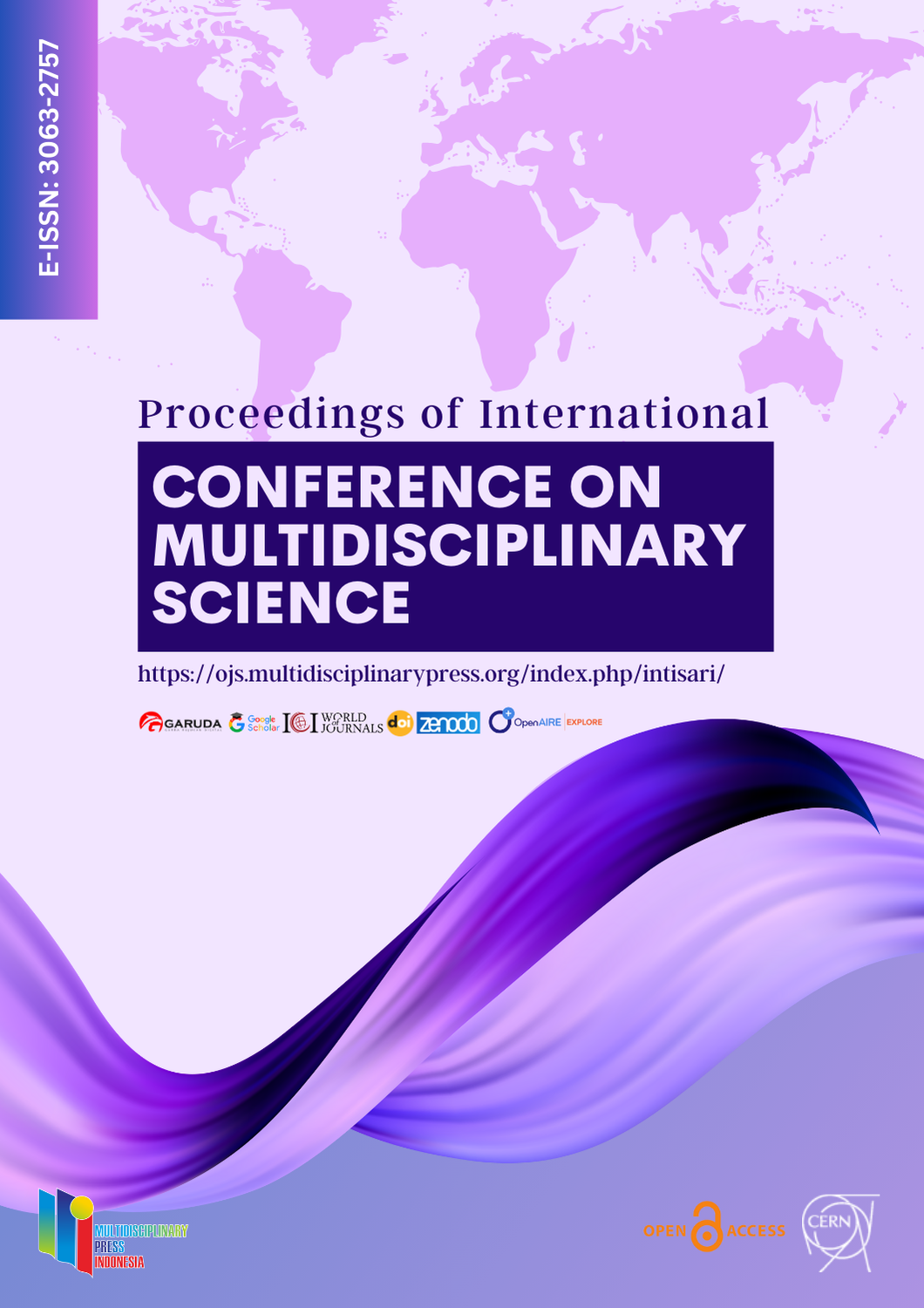The Influence of Work Abilities on Employee Performance at The Binjai City Tourism Office
Keywords:
work ability, employee performanceAbstract
The aim of this research is to determine and analyze the influence of work ability on employee performance at the Binjai City Tourism Office. This research was conducted using a causal associative quantitative approach. The sample used was all company employees, with a total of 38 people. The research results show that work ability has a positive and significant effect on employee performance. This is shown by the T-count value of3.756 which is greater than the T-table 1.685, and the P-Value value is 0.000 which is smaller than 0.05. The regression coefficient shows that if work ability is increased by 1 unit, employee performance will increase by 0.931 units assuming other variables remain constant. Apart from that, the results of the determination test show an Adjusted R Square value of 0.221 or 22.10%, which indicates that work ability has a low influence on employee performance, while the remaining 77.90% is influenced by other factors that have not been studied. Thus, partially, work ability has a positive and significant effect on employee job satisfaction at the Binjai City Tourism Office. This identifies that, meaning, improvements in employee work abilities can contribute to improving employee performance.
Downloads
References
Afandi, P. (2018). Human Resource Management (Theory, Concepts and Indicators). Zanafa Publishing.
Ananda, RRA, Purnomo, H., & Soejoko, DKH (2021). The Influence of Knowledge Sharing and Work Motivation on the Performance of PLN Kertosono Nganjuk Employees. National Seminar on Management, Economics, Accounting, 6 (1), 317–324. https://proceeding.unpkediri.ac.id/index.php/senmea/article/view/693
Fahmi, I. (2017). Financial Report Analysis (Print 4). Alphabet.
Ghozali, I. (2018). Multivariate Analysis Application with the IBM SPSS 25 Program. Diponegoro University Publishing Agency.
Kuncoro, M., & Hardani, W. (2013). Research Methods for Business and Economics How to Research and Write a Thesis? (4th ed.). Erlangga.
Kusjono, G., & Ratnasari, P. (2019). The Influence of Motivation and Compensation on Employee Performance at PT. Sustainable Energy Source (Citylight Apartment) South Tangerang. GENIUS (Scientific Journal of Human Resource Management), 2(2), 224. https://doi.org/10.32493/jjsdm.v2i2.2230
Kusuma, D., Soejoko, H., & Purnomo, H. (2021). E-Bis Journal (Economics-Business) Path Analysis of Transformational Leadership and Job Satisfaction. E-Business Journal (Business-Economics), 5(2), 462–477.
Mangkunegara, AP (2016). Corporate Human Resources Management (Print 13). Rosdakarya Teenager.
Robbins, S. P., Judge, T., & Campbell, T. (2017). Organizational Behavior 2nd edition. Pearson Education.
Subagyo, & Purnomo, H. (2022). Sustainable MSME Management. CV. INDONESIAN SCIENCE MEDIA. https://www.researchgate.net/profile/Muhammad-Alamsyahbana/publication/369450339_Manajemen_UMKM_Berkebesaran/links/641bc47166f8522c38c78a15/Manajemen-UMKM-Berkebesaran.pdf#page=14
Sugiyono. (2018). Combination Research Methods (Mixed Methods). Alphabet.
Downloads
Published
How to Cite
Issue
Section
Categories
License
Copyright (c) 2024 Wira Juwita, Mesra B

This work is licensed under a Creative Commons Attribution 4.0 International License.





